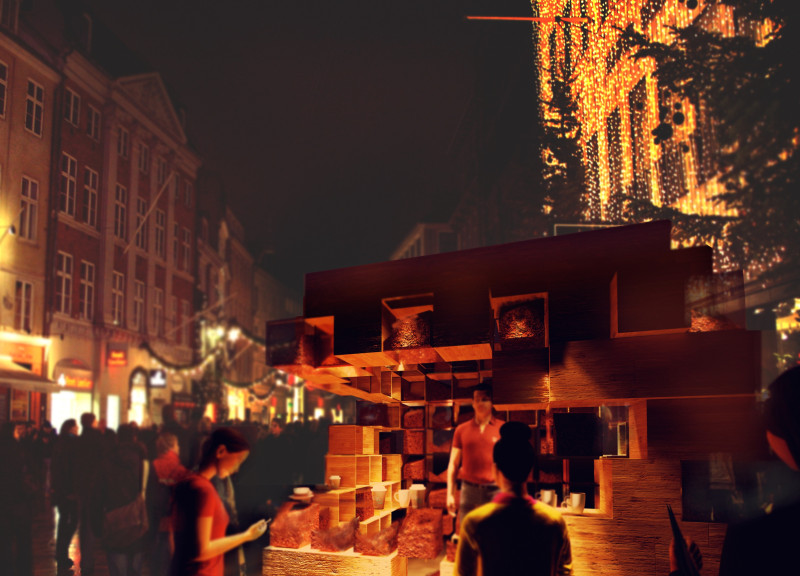5 key facts about this project
The Coffee Lighthouse serves as a unique blend of function and public engagement, positioned strategically in a bustling area. This kiosk not only functions as a coffee vendor but also acts as a visual attractor for those passing by. The design centers around the idea of transparency and interaction, allowing individuals to observe the coffee-making process as part of their experience.
Visibility and Engagement
A key aspect of the design is its focus on visibility. The use of transparent bioplastic in the façade invites customers to look inside and see various stages of coffee preparation. From whole beans to ground coffee and even used coffee grounds, the design emphasizes the journey of coffee. This interaction nurtures a greater understanding and appreciation for the product.
Workspace Functionality
The layout is designed with the barista's workflow in mind, ensuring an efficient and comfortable workspace. Every element is arranged to support the barista's tasks, making it easier to serve customers quickly. The compact space is optimized for movement, allowing for high-quality service in a busy setting.
Material Choices
Materials for the kiosk reflect a commitment to sustainability. Recycled wood makes up the structure, lending a warm touch while reducing environmental impact. Bioplastic is selected for its clarity, highlighting the coffee while also being biodegradable. The combination of these materials enhances the overall design and aligns with modern values.
The arrangement of the materials creates interesting interactions with light throughout the day. As sunlight filters through the transparent sections, it highlights the coffee and transforms the kiosk into a lively feature in its surroundings. This aspect invites exploration and curiosity, making the Coffee Lighthouse a dynamic addition to the urban landscape.


























